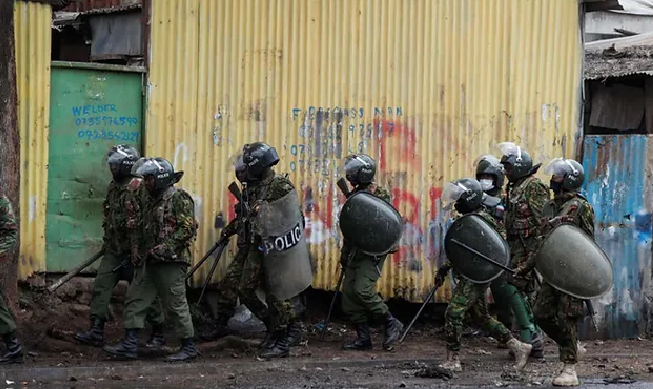In a decisive move to address the escalating gang violence in Haiti, government and police sources have confirmed that a Kenyan-led multinational peacekeeping force will deploy to the Caribbean nation on Tuesday, June 25.
This deployment marks a significant step in a United Nations-backed mission aimed at restoring stability and security in a country increasingly beleaguered by criminal activities and social unrest.
The decision to send the peacekeeping force comes despite a recent court order against the move, highlighting the urgency and gravity of the situation in Haiti.
For years, the country has struggled with gang-related violence that has crippled its economy, disrupted daily life, and posed a severe threat to the safety of its citizens.
The peacekeeping mission, spearheaded by Kenya, underscores a strong international commitment to help Haiti navigate through this period of turmoil.
Haiti’s crisis is multifaceted, with deep-rooted political instability, economic challenges, and widespread poverty contributing to the surge in gang activities.
The gangs have increasingly filled the power vacuum left by weak governmental structures, exerting control over significant portions of the capital, Port-au-Prince, and other urban areas.
This has led to a sharp increase in kidnappings, extortion, and violent confrontations, leaving ordinary Haitians living in constant fear.
The deployment of the Kenyan-led force is a response to an appeal from Haiti’s interim government and several humanitarian organizations for international assistance.
The mission is not without controversy, however. The court order against the deployment stems from concerns about sovereignty and the potential for international forces to exacerbate existing tensions rather than resolve them.
Critics argue that without addressing the root causes of instability, such interventions may offer only temporary relief.
Kenya’s leadership in this mission is particularly noteworthy.
The East African nation has a history of contributing to peacekeeping efforts across the continent, including in Somalia and South Sudan.
This operation in Haiti marks Kenya’s first major peacekeeping role outside Africa, reflecting its growing influence and capacity in international peace and security efforts.
The Kenyan forces are expected to collaborate closely with other multinational contingents and local law enforcement to restore order and build sustainable peace.
The United Nations’ backing of this mission is crucial, as it provides the legal and logistical framework necessary for such a large-scale intervention.
UN support also brings additional resources and expertise to the table, enhancing the mission’s chances of success.
The international community’s involvement, spearheaded by the UN, demonstrates a collective recognition of the severe humanitarian and security crisis in Haiti.
As the deployment date approaches, all eyes are on the multinational peacekeeping force and its ability to make a tangible impact.
The success of this mission will depend not only on the military and logistical capabilities of the peacekeepers but also on their ability to engage with local communities, build trust, and support long-term initiatives aimed at addressing the underlying issues that fuel gang violence.
The deployment of the Kenyan-led peacekeeping force to Haiti on June 25 is a significant development in the international response to Haiti’s gang violence crisis.
Despite legal challenges and concerns about the efficacy of such interventions, this UN-backed mission represents a critical effort to restore peace and stability to a nation in desperate need of support.
The world will be watching closely, hopeful that this initiative will pave the way for a more secure and prosperous future for Haiti.





















Add Comment